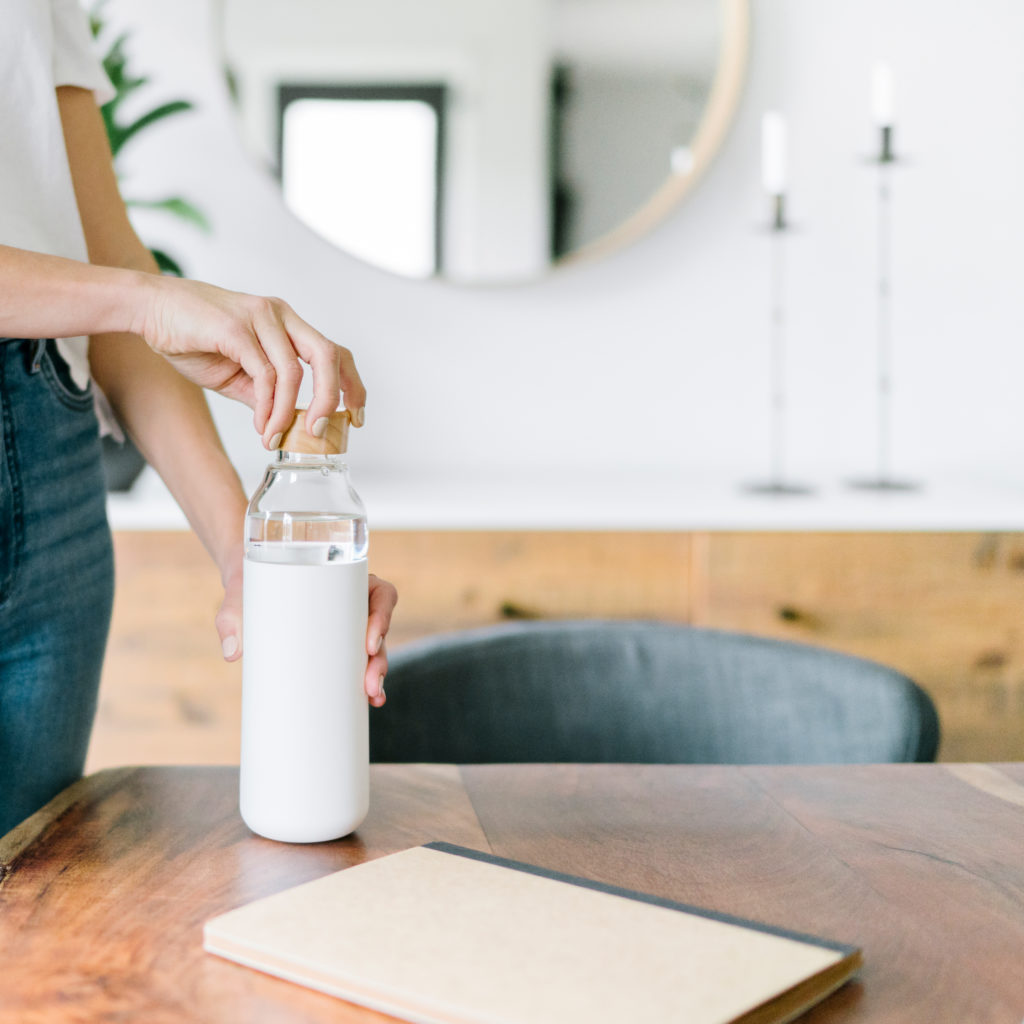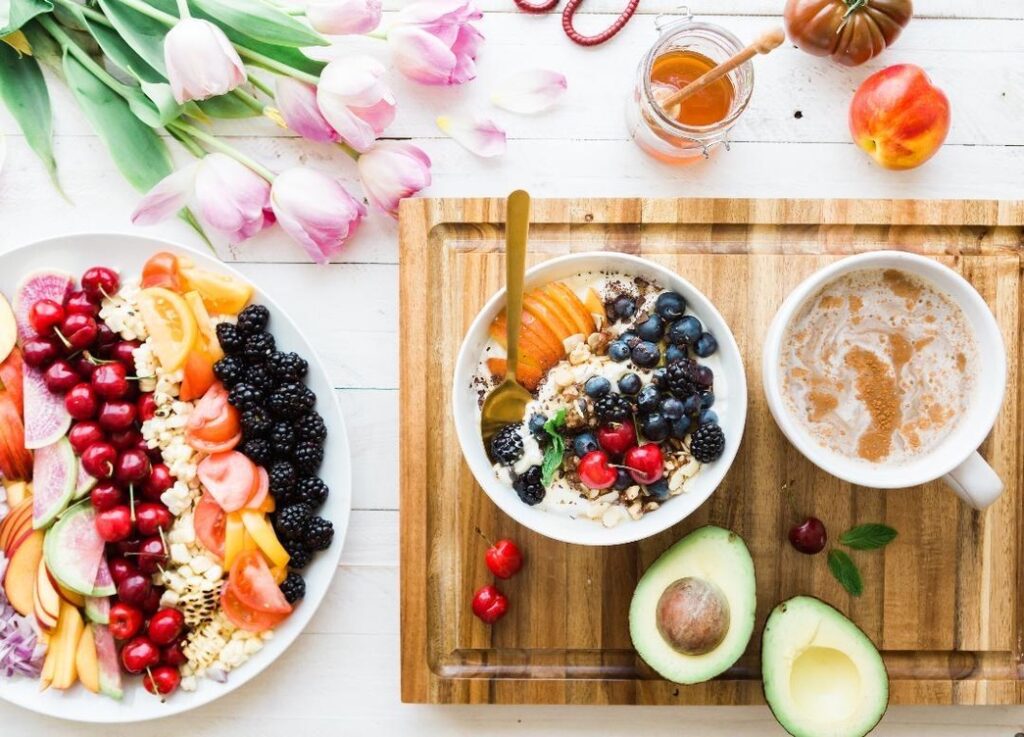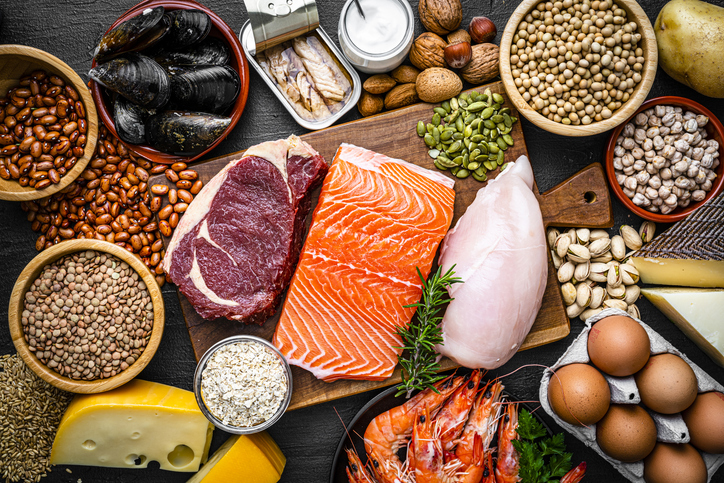Hydration
Keeping yourself properly hydrated is so important when it comes to gut health and 2 L of water each and every day is required for optimal hydration. Here are some effective ways to maximize hydration:
- Be sure to drink your water slowly throughout the day to increase absorption
- Always try and carry a bottle of water around with you or keep it visible on your desk to remind you to drink constantly throughout the day
- Increase water consumption on days you are exercising
- Eat foods that have a high water content (i.e., cucumbers, zucchinis, tomatoes and watermelon)
- Lemon juice is great for the liver stimulating bile flow which gets the rest of the digestive system moving. Just squeeze a wedge of lemon in a glass of warm water and drink first thing in the morning!
Pre-biotic and probiotic
Healthy bacteria in our gut is essential for the proper breakdown and absorption of nutrients from our food as well as proper elimination. Having a good balance of healthy bacteria is key to gut health. Prebiotic’s are essentially a type of non-digestible fiber that goes through our upper GI tract undigested. They then go into the colon where they are fermented. Probiotics are live microorganisms that help to keep a healthy, natural balance of organisms in the intestine. Both pre-biotic and probiotic are important to help keep a natural balance and improve gut health.
Sources of prebiotic bacteria include:
- Jerusalem artichoke
- Raw chicory root
- Raw dandelion greens
- Raw garlic
- Raw leeks
- Raw and cooked onions
- Raw asparagus
Sources of probiotic bacteria include:
- Yogurt
- Kefir
- Sauerkraut
- Tempeh
- Miso
- Kombucha
- Pickles
- Apple cider veinegar
Watch stress
The tummy is the “second brain” with more serotonin than the brain itself! So when stress is high, our gut is negatively affected. Try to keep stress to a minimum and incorporate stress relieving activities into your daily routine (i.e., yoga, meditation, breathing exercises, visualizations, exercise and listening to music).
Avoid pro-inflammatory foods
Avoiding pro-inflammatory foods is essential for a healthy gut as they are one of the biggest triggers for inflammation. Some examples of pro-inflammatory foods to avoid include:
- White bagels
- White refined sugary treats, including cookies and cakes
- Sugary cereals
- Candy
- Alcohol
- Food additives and preservatives
- Hydrogenated oils
- Processed foods and meats
- Pops and sodas
Anti- inflammatory foods are the “good guys” which help to reduce inflammation in the gut. These include:
- Green leafy vegetables (i.e., spinach, kale, broccoli, etc)
- Healthy fish (i.e., salmon, tuna, sardines, etc.)
- Extra virgin olive oils
- Berries (especially blueberries)
- Cherries
- Green tea and matcha powder
- Dark chocolate
- Turmeric
- Whole grains
- Eggs
- Garlic
- Tomatoes
- Nuts and seeds
In addition to incorporating anti-inflammatory foods, I would also recommend adding a fish oil into your daily routine to further reduce any inflammation and help support the gut.
Proper eating techniques
Proper eating techniques should be implemented with every meal for ultimate gut health.
- For optimal digestion, it is important not to rush meals – eat slowly to avoid swallowing air.
- Remove any distractions that may be around you – including TV and cell phones.
- Chew your food thoroughly before swallowing – this allows the nutrients in the foods to get broken down by the enzymes in your saliva before being swallowed.
- Avoid drinking too much water with your meals – water will dilute the enzymes required for proper digestion so only drink a small amount of room temperature water.




